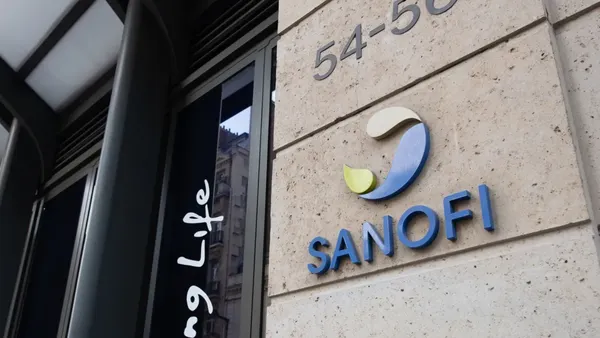Today, a brief rundown of news involving Biohaven and Catalent, as well as updates from Stealth Biotherapeutics, Jazz Pharmaceuticals and Celldex Therapeutics that you may have missed.
The Food and Drug Administration no longer plans to hold a meeting with outside experts to help evaluate an approval application for a Biohaven medicine called troriluzole. According to a regulatory filing, the agency informed Biohaven of this change on Thursday, but still expects to issue an approval verdict sometime late in the year. Canceling the advisory committee meeting "likely indicates that the FDA feels it has sufficiently resolved any difficulties in interpreting data pertaining to the safety or efficacy of the drug — though whether their conclusion is positive or negative is difficult to determine," wrote RBC Capital Markets analyst Leonid Timashev in a note to clients. Timashev also highlighted how the history of these cancellations is "modestly encouraging" for Biohaven, since, in roughly two-thirds of cases, the FDA subsequently green lit the drugs under review. — Jacob Bell
Contract manufacturer Catalent has laid off 350 employees working at its Baltimore gene therapy facility due to “an unexpected shift in demand from a large customer,” a company spokesperson confirmed to BioPharma Dive. “Our gene therapy business continues to see strong growth and we look forward to working on behalf of customers to deliver novel therapies for patients with genetic diseases,” the spokesperson added. Catalent is now owned by Novo Holdings, the parent company of Novo Nordisk. — Ned Pagliarulo
The FDA has accepted a revised approval submission for a rare disease drug developed by Stealth BioTherapeutics. According to Stealth, the agency considers its new application a “class 2 response” to a prior rejection, meaning its treatment, a Barth syndrome therapy called elamipretide, would typically undergo a six-month review ending in February. The FDA, though, intends to make a decision by Sept. 26, Stealth said Thursday. The review of elamipretide has been flagged by conservative outlets as evidence of biotech innovation slowing down under the leadership of commissioner Martin Makary. — Ben Fidler
Jazz Pharmaceuticals has bought rights to an experimental epilepsy medicine in a heavily back-loaded deal that could ultimately surpass $1 billion in value. Jazz gave Denmark-based Saniona almost $43 million upfront for an exclusive license to “SAN2355,” a small molecule drug designed to activate certain so-called potassium ion channels. While not yet in human testing, SAN2355 looks to be a “highly promising” asset with the potential to be the best in its drug class, said Robert Iannone, Jazz’s head of research and development. TD Cowen analyst Joseph Thome wrote in a note to clients how the deal “brings in a familiar, closely watched target” that “should fit in nicely with Jazz's current neuroscience portfolio.” Thome added that Saniona’s molecule is somewhat de-risked due to the clinical advancement of rival therapy from Xenon Pharmaceuticals. — Jacob Bell
An experimental drug from Celldex Therapeutics didn’t alleviate signs and symptoms of the inflammatory condition eosinophilic esophagitis in a Phase 2 trial, the company said Wednesday. The drug, barzolvolimab, is currently in late-stage testing in people with skin hives called urticaria. Celldex had been hoping the drug’s ability to deplete levels of mast cells — immune cells implicated in multiple immune conditions — might be beneficial in eosinophilic esophagitis too. While that didn’t happen, barzolvolimab still had “clean safety” in the study, which “bodes well” for its ongoing Phase 3 trials in urticarias, wrote Leerink Partners analyst Thomas Smith. — Ben Fidler












